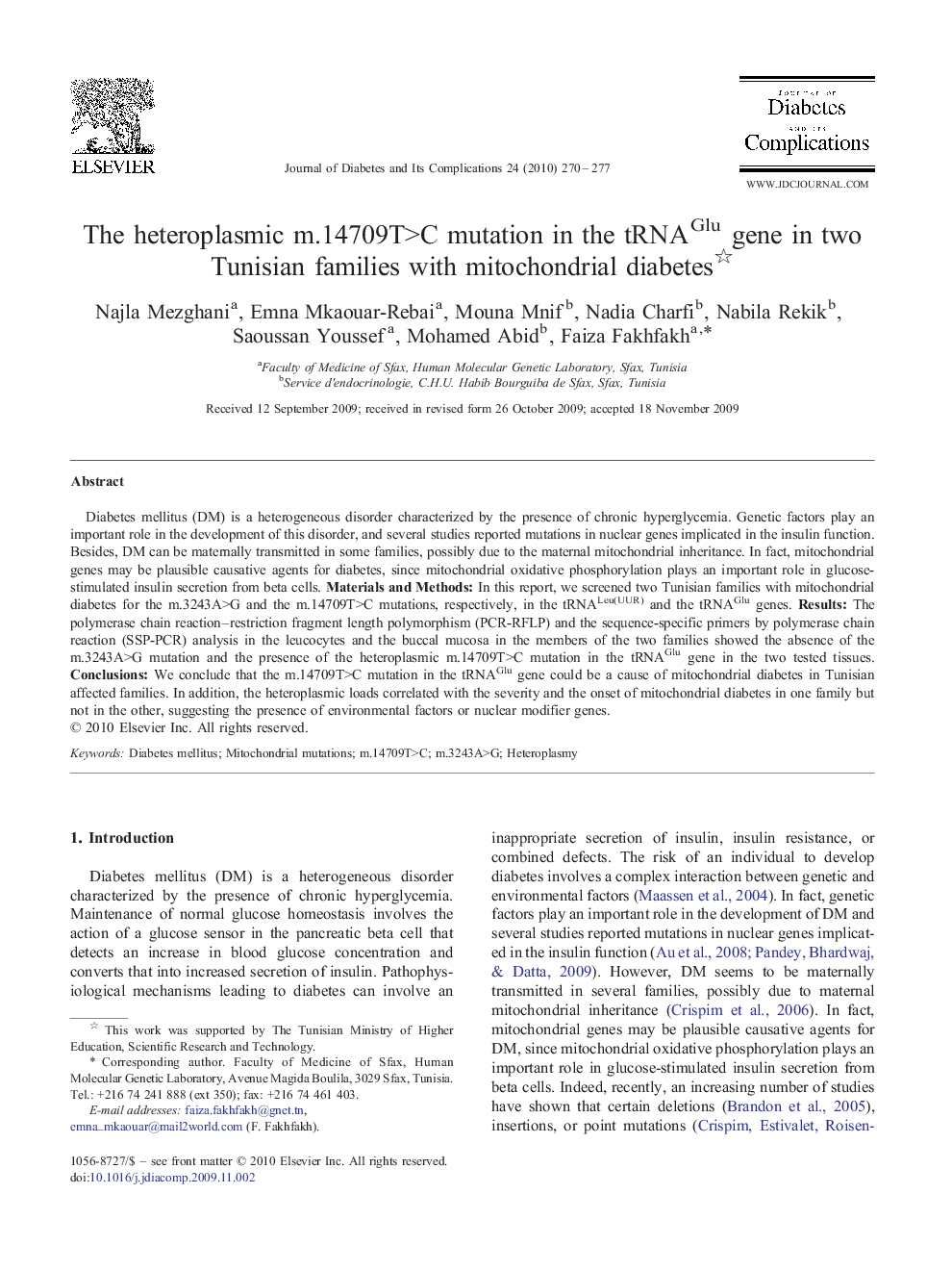| Article ID | Journal | Published Year | Pages | File Type |
|---|---|---|---|---|
| 2804328 | Journal of Diabetes and its Complications | 2010 | 8 Pages |
Diabetes mellitus (DM) is a heterogeneous disorder characterized by the presence of chronic hyperglycemia. Genetic factors play an important role in the development of this disorder, and several studies reported mutations in nuclear genes implicated in the insulin function. Besides, DM can be maternally transmitted in some families, possibly due to the maternal mitochondrial inheritance. In fact, mitochondrial genes may be plausible causative agents for diabetes, since mitochondrial oxidative phosphorylation plays an important role in glucose-stimulated insulin secretion from beta cells.Materials and MethodsIn this report, we screened two Tunisian families with mitochondrial diabetes for the m.3243A>G and the m.14709T>C mutations, respectively, in the tRNALeu(UUR) and the tRNAGlu genes.ResultsThe polymerase chain reaction–restriction fragment length polymorphism (PCR-RFLP) and the sequence-specific primers by polymerase chain reaction (SSP-PCR) analysis in the leucocytes and the buccal mucosa in the members of the two families showed the absence of the m.3243A>G mutation and the presence of the heteroplasmic m.14709T>C mutation in the tRNAGlu gene in the two tested tissues.ConclusionsWe conclude that the m.14709T>C mutation in the tRNAGlu gene could be a cause of mitochondrial diabetes in Tunisian affected families. In addition, the heteroplasmic loads correlated with the severity and the onset of mitochondrial diabetes in one family but not in the other, suggesting the presence of environmental factors or nuclear modifier genes.
